On Hungary’s most prominent arts festival featuring all kinds of arts, on the 28th CAFe Budapest Contemporary Arts Festival, Katalin Károlyi mezzosoprano will give the concerts Human Voice 2.1 and Human Voice 2.2 on the 7th and 8th October. The repertoire consists of three contemporary pieces of different kinds. In the programme, there is an opera premiere and an album release. We were talking about the two performances and the festival.
What is your connection to this contemporary arts festival? Have you performed here before?
Yes, several times. The last time was two years ago, in Gergely Vajda’s opera Georgia Bottoms. I find it very important that we have such a festival in Budapest and also in general, as we not only live with contemporary technology but also with arts and music. The way we live our life is the basis of what kind of arts we create, and arts reflect on our life at the same time.
In the context of Attila József’s poems, set to music by Béla Faragó, what do you think contemporary music can add to literature? What is their relation?
Musical poems, composition inspired by poems, or composition of songs are all ancient. Remember folk songs – their lyrics is folk poetry. It has been present of the music of all ages. In Hungary, lovely song cycles have been written for the last hundred years. Poems by Endre Ady, Attila József, János Pilinszky, Dezső Tandori, Sándor Weöres all have been set to music by several composers in very different ways. Weöres’ extraordinary rhythm, catchy for even the smallest children, or József’s enchanting magic was very important for my generation because of Ferenc Sebő and the band Kaláka. And there are original song cycles by Béla Bartók, György Kurtág, György Selmeczi, György Ligeti – they are little pearls in the big sea of song literature. I love to be part of the process when a song cycle is created, as it is always exciting why and how poems or poem parts are chosen and internalized in the composer’s own world.
What is Béla Faragó’s musical strategy for these poems?
With forms and harmonies that are tremendously clear, so the poem remains living in them. It is the poem’s musicality that stays in the spotlight, the music itself is kind of a support with clear musical tools. Sometimes there is singing voice with piano, sometimes with violin, and sometimes with both.
What poems will be part of the show? What was the principle behind choosing these?
Eternal “classics” like Put your hand and Lullaby, and Two hexameters, Bear Dance, his eponymous Attila József, Don’t be hasty, and most surprisingly the Proletarian Song. The original cycle consisted of eight pieces, but we left one out as both the composer and myself felt it might not really fit to the others. We realized this when working on the album. This will be the album premiere, anyway. Seven poems, according to the composer’s selection.
Which nations will be represented in Folk Songs by Luciano Berio?
There will be eleven songs in various languages and dialects (English, Armenian, Occitane, Sardinian, Sicilian, etc.), but the series also consists of pseudo-folk songs composed by Berio himself. The lyrics come from unknown writers. He wrote Folk Songs for his wife, a great singer of Armenian descent, and creates a new rhythmic and harmonic language for folk songs, so in a sense he rewrites them. That motivated the selection of the instruments (flute, clarinet, viola, cello, harp or guitar, percussion). Every song represents a different character, which is great for musicians but also for the singer, as we can freely let the songs lead us. The singer as a person almost disappears, and only the pure playfulness of the folk songs remains.
In the second show, we can hear John Cage’s Europera 5, with classic opera pieces in a contemporary environment, which sounds fascinating.
In John Cage’s opera – where the composer himself hasn’t written a single note – techniques of 19th and 20th century opera are clashing on stage. Nowadays, with 21th century technique, even tools from 28 years ago are impossible to use, so setting this piece to stage raises a lot of questions, but I think we found good answers. This piece is in fact a collage, a happening. Two opera singers, a pianist, a sound technician and a light technician create the performance. But I won’t tell you more now, as Cage himself still says that it should be a surprise. The less audience knows, the more relaxed they listen to the music. One thing is important to remark: this will be the Hungarian premiere of this piece.
Do you sing classical opera as well? What is the challenge of this piece in relation to that?
Yes, I sing in classical and romantic operas, although my main repertoire consists of baroque and contemporary pieces and chamber music. The challenge in Europera 5 is that I feel naked without orchestral or piano accompaniment with a lot of different sounds. Layers of music build upon each other in a surprising way, just like in a collage. We hear everything that we have to, but the arias don’t sound like in an original opera setting.
Let’s talk a bit about the title of your shows! Why Human Voice?
László Gőz at the Budapest Music Center gave the title. He has been planning a series of more concerst for a while. I submitted several concert plans, he found these the most fitting to his own ideas, and CAFe was happy to include them. From the most primer ways of giving voice to murmurs, whispers, humming and finally to singing, we go through all kinds of “usages” of human voice – sometimes only showing them for a second – until we arrive to diamond-shaped phonation: opera singing.
How would you recommend the two concerts?
They are, of course, interpretable and enjoyable on their own, but they are still one programme featuring all aspects of human voice. Human voice is an instrument everyone has. As children we all sing, as there is a phase around 3 years of age when we speak in a singing voice. Most people get discouraged by others who tell them their voice is “not good enough”, so they don’t dare to sing anymore. A series like this is not only great because audience can hear fine and rare pieces, but it also leads people back to their voice they have always had. They can release it while humming a lullaby to a child, singing a folk song, a pop song, or even an aria under the shower. Everyone can be touched by either the one or the other show, but together they are even complete.
Interview: Anna Rácz
Translation: Zsófia Hacsek

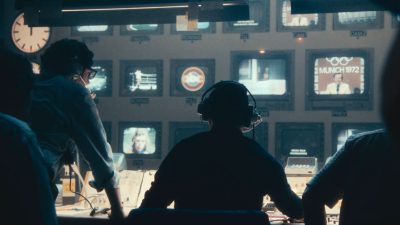
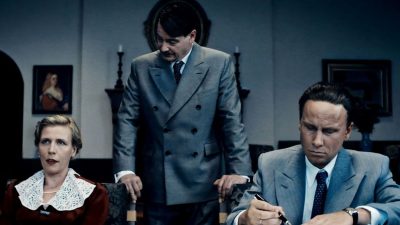
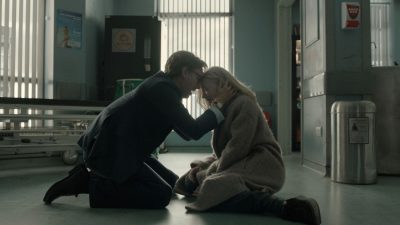

















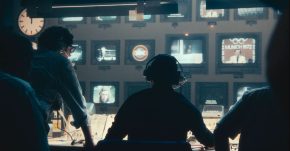
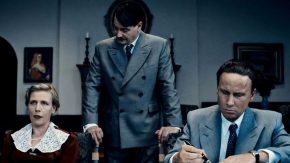
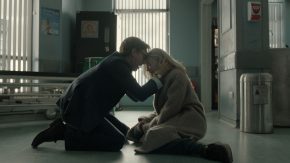

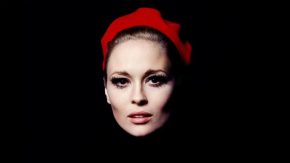
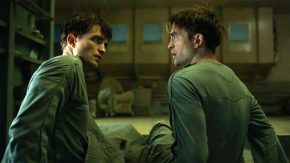
Comments